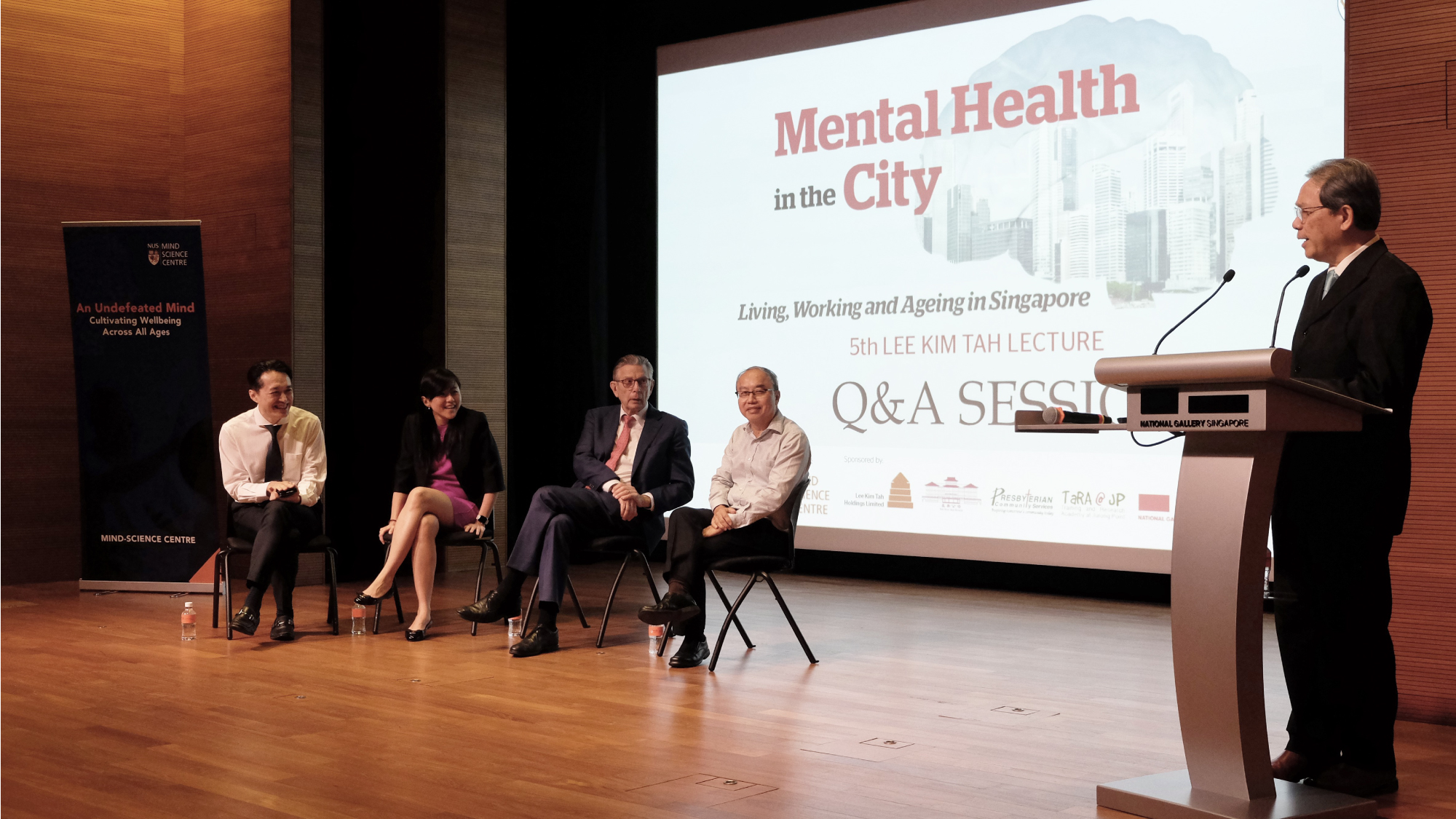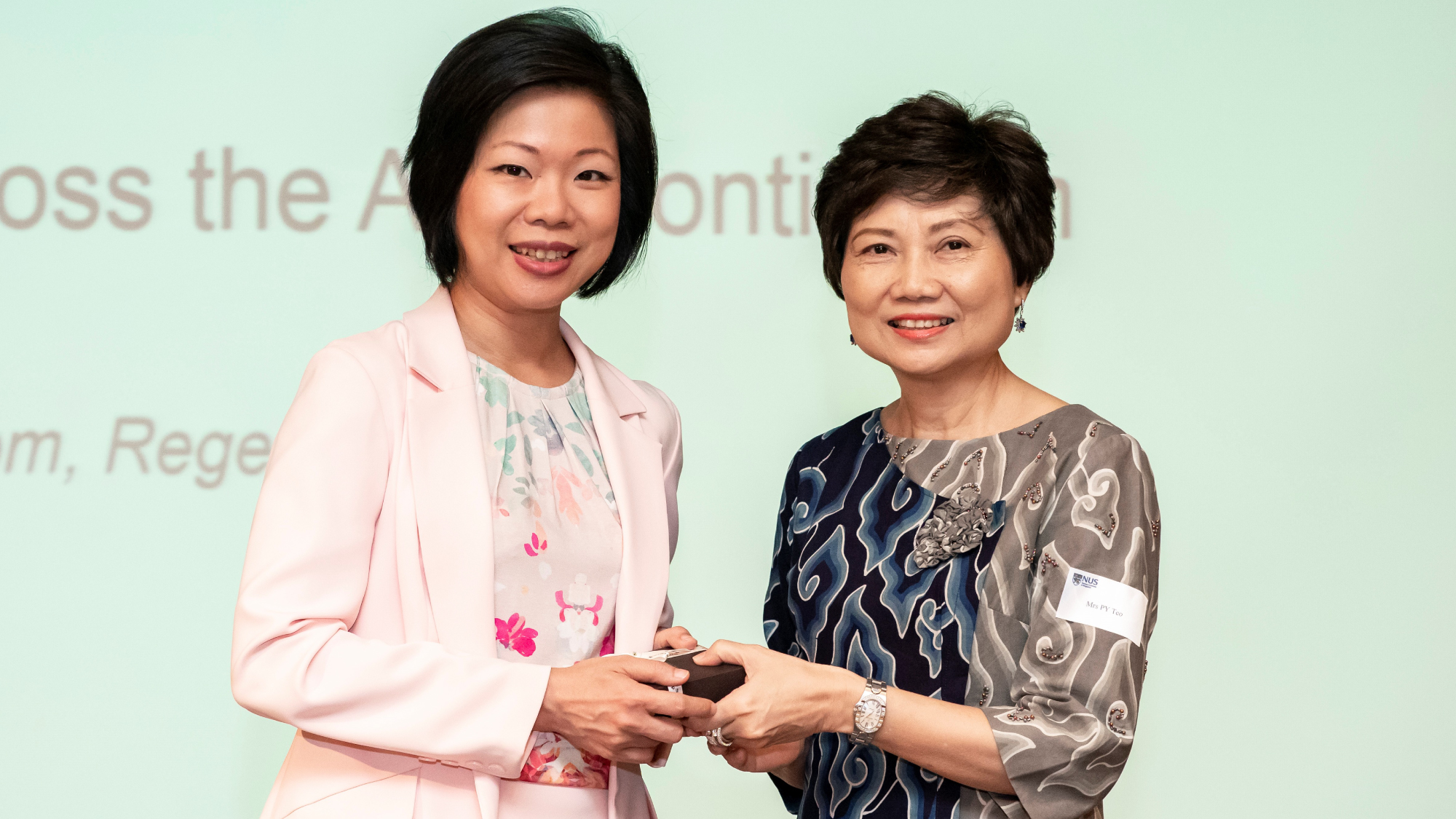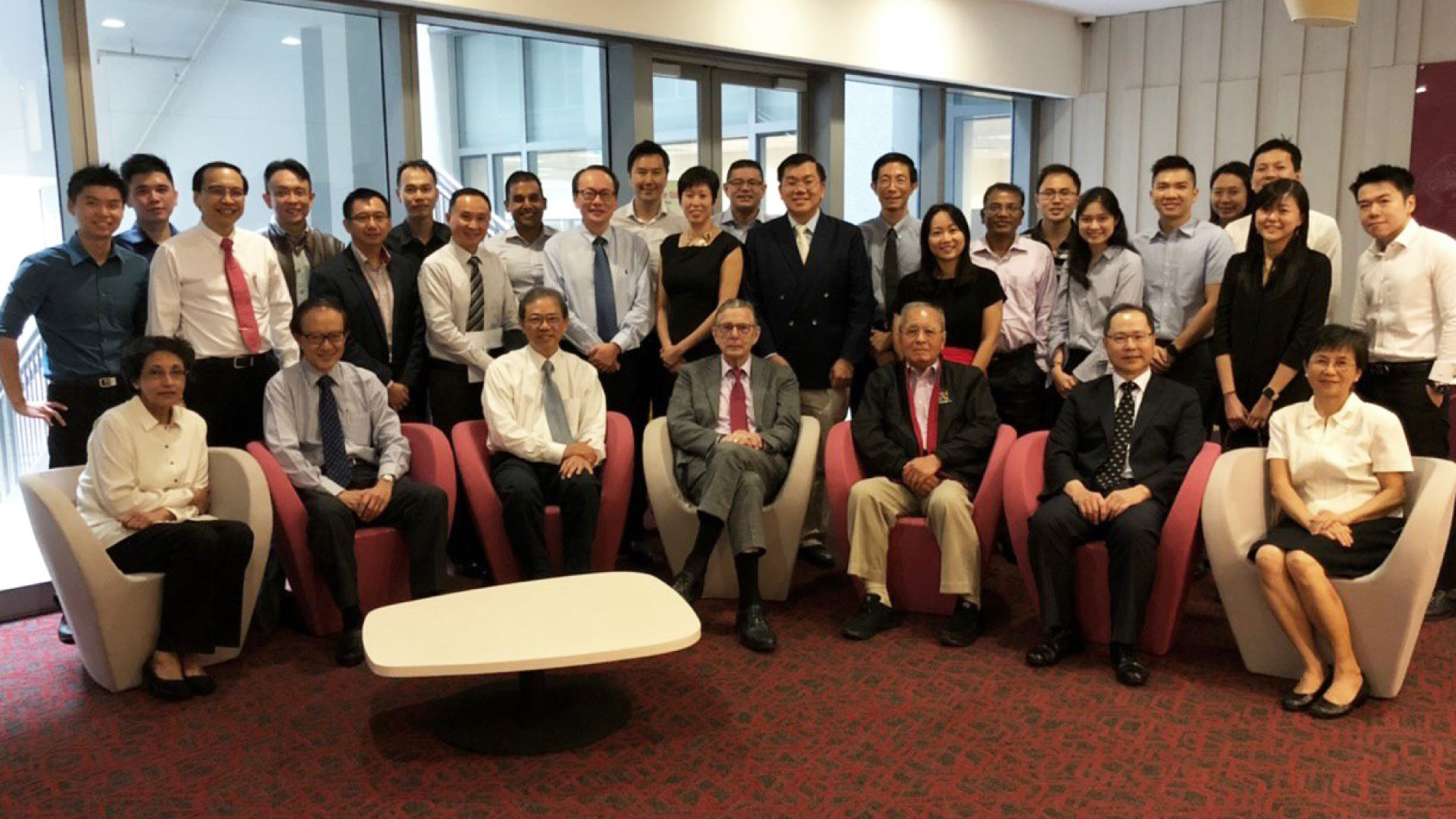Resilience Key to Mental Fortitude
NUS Psymed Conference focuses on impact of adverse events on mental health, ability to cope with stress
The NUS Department of Psychological Medicine started the year with the 5th NUS Academic Psychiatry Conference. It was centred around the theme “Resilience Across the Age Continuum”, a very pertinent theme in our day and age. With psychiatric conditions such as depression, anxiety and cognitive impairment on the rise, the spotlight focuses on whether such conditions can be prevented or staved off. Resilience reflects the fortitude of the mind in facing adversity, and thus forms an important component of our strategy to promote mental health in the general population. The conference thus sought to understand the various factors in resilience from the young to the old, and how we can build resilience in these subgroups. International experts from 16 different countries shared their views in these areas with delegates from various mental health professions, including medicine, psychology, nursing, school counselling and occupational therapy.
Four pre-Conference workshops featured domain experts in psychiatry – Dr Alan Wallace, President of the Santa Barbara Institute for Consciousness Studies, chaired the Mindfulness Workshop over four afternoons. The Neurocognitive Rehabilitation Workshop was led by Dr Isabelle Amado, the Director of the Reference Centre for Cognitive Remediation and Rehabilitation (C3RP) in Sainte Anne Hospital in Paris, France. Professor Robert Ursano, Director of the Center for the Study of Traumatic Stress and Chairman of the Department of Psychiatry at the Uniformed Services University of the Health Sciences in Maryland, USA, chaired the third workshop on Brief Psychodynamic Psychotherapy. The fourth – the Leadership Workshop – featured experienced psychiatrists such as Professor Kua Ee Heok, Professor Norman Sartorius, Dr Chee Kuan Tsee, Professor Chong Mian-Yoon and Associate Professor Tan Chay Hoon, who shared their insights and thoughts about leadership in medicine and psychiatry. The workshops sought to address apposite topics and areas of interest, equip clinicians with skills to better care for their patients, and further develop psychology and psychiatry in the context of the Singaporean population.
The Resilience Roundtable, held before the Conference, discussed several specific aspects of resilience, such as resilience in childhood adversity and trauma, as well as the role of technology and spirituality in resilience. There was also a lively discussion over the nature of resilience, where its biological, genetic and environmental factors were discussed. Various stakeholders in the community were invited to contribute their expertise and perspectives on these issues.
Over the weekend, the Mind-Science Centre held two talks at the Ngee Ann Kongsi Auditorium at the National Gallery Singapore. Dr Alan Wallace was invited to give a talk on Mindfulness to the volunteers of the Age Well Everyday programme spearheaded by the Mind-Science Centre. In the afternoon, a public symposium was organised on the theme “Mental Health in the City: Living, Working and Ageing in Singapore”. Professor Norman Sartorius, Inaugural Speaker of the Tow Tiang Seng Distinguished Lecture Series, delivered the 5th Lee Kim Tah Lecture. Three clinicians, Dr Celine Wong, Dr Tian Cheong Sing and Dr Chris Tsoi delivered other talks on various aspects of mental health relevant to Singaporeans.
The Conference proper, held over a two-day period, was launched by Professor Chong Yap Seng, Dean of the NUS Yong Loo Lin School of Medicine. Professor Norman Sartorius delivered the keynote lecture on the topic of global mental health, and the first symposium followed, looking into ageing and preventative health. Researchers in this field shared about the interventions that they developed and trialled in large cohorts with the aim of promoting and sustaining mental resilience in the elderly. Intergenerational interactions, cognitive training, aerobic exercise, and choral singing were discussed as means by which communities of elderly people could come together to strengthen their minds.

Left to right: Dr Chris Tsoi, Dr Celine Wong, Prof Norman Sartorius, Dr Tian Cheong Sing, and Prof Kua Ee Heok, during the Public Symposium Q&A Session.

Ms Sim Ann, Guest of Honour at the Greater Good Series Dinner, with Mrs Teo Poh Yim, Patron of the Mind-Science Centre.
The second symposium was on public health and epidemiology. Professor Ursano delivered the plenary lecture on resilience in adversity, looking how we can build the core of resilience even in trying and traumatic circumstances. Other speakers shared about their work in public health efforts to build resilience, including understanding the effects of natural disasters on the human psyche, looking at how loneliness and ageing affects resilience, and how positive mental health and well-being can be built.
Day 2 opened with a plenary lecture by Dr Becky Inkster on the effects of digital innovation on mental health services. A diverse range of speakers shared about other aspects of digital mental health, with topics such as using digital tools to optimise healthcare, and developing smartphone apps to prevent suicide and to cope with stress or mild depression.
A summary of the Resilience Roundtable was also presented at the Conference by Professor Ursano and Professor Frank Verhulst. Though it was but a short two
days, there was much discussion and sharing, and the delegates who attended the Conference had a fruitful time.
To end the Conference, as well as to mark the 40th Anniversary of the Department of Psychological Medicine, the Greater Good Series Dinner was held with over 200 guests, many of whom are former department staff. Ms Sim Ann, Senior Minister of State, Ministry of Communications and Information and Ministry of Culture, Community and Youth, delivered the opening address on community resilience.
The 5th NUS Academic Psychiatry Conference saw one week with a flurry of activity, but has left behind much to think about and act upon. At the dinner, Professor Sartorius parted with these words: “Resilience is a big goal, and it requires attention and involvement from all of us.” Indeed, all of us must think about what resilience means to us, and how we can develop it in ourselves, in those around us, and together as a community.

Speakers, discussants and participants of the Leadership Workshop.
